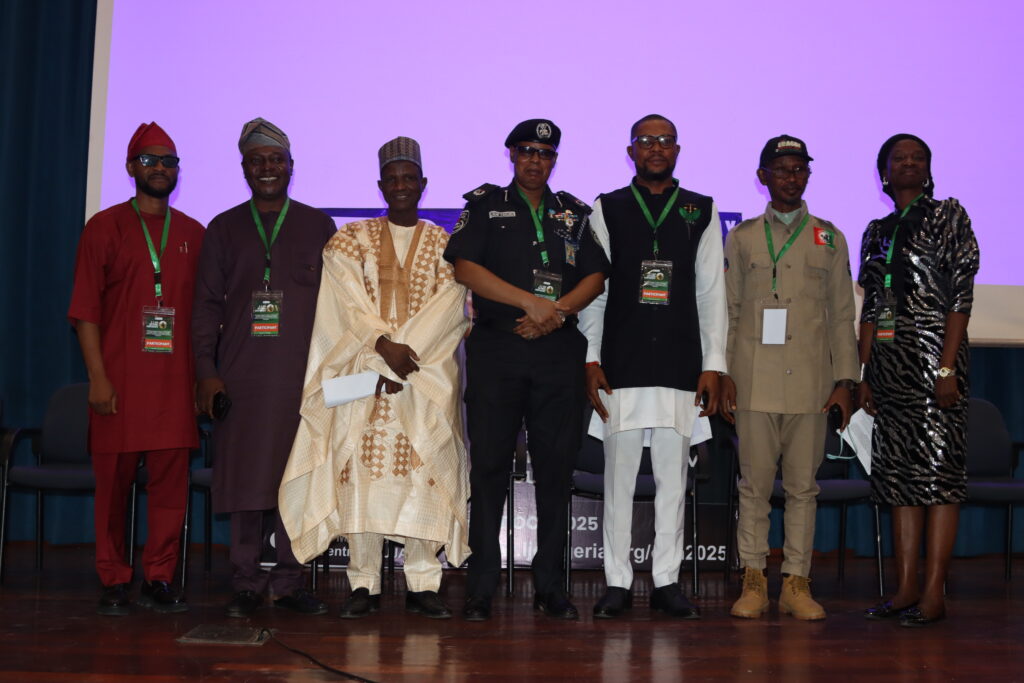Two-Day Conference in Abuja
The Leadership Hub for Justice and Economic Advancement (LJE) has concluded its highly anticipated two-day national conference in Abuja, bringing together policymakers, traditional rulers, community leaders, civil society organizations, and security experts to deliberate on one of Nigeria’s most urgent national issues — the farmers–herders crisis.
The event, which took place at the Shehu Musa Yar’Adua Centre, was described by participants as timely and strategic, coming at a period when clashes between farmers and pastoralists continue to threaten food security, national unity, and rural development across the country.
The Focus of the Conference
The national conference provided a rare opportunity for open dialogue, where stakeholders brainstormed on the root causes of the crisis and proposed practical solutions that can be implemented at both local and national levels.
According to experts, the farmers–herders conflict is not just about land use and grazing routes, but also about justice, equity, and inclusive governance.
The conference therefore emphasized that peace can only be achieved if all voices — farmers, herders, traditional rulers, women, youth, and government representatives — are part of the conversation.
Keynote Address by LJE President
In his keynote speech, the President of LJE, Barrister Samuel Memeh, underscored the urgency of moving from dialogue to action. He stressed that Nigeria cannot afford to ignore the crisis, as it directly affects food production, security, and economic stability.
“The only way forward is through justice, inclusivity, and dialogue. Every stakeholder must feel heard and represented. If we want a united Nigeria, we must embrace fairness and create platforms where differences are managed through conversation, not conflict,” Memeh said.
He also pointed out that the conference was not just about talking, but about producing workable strategies that can be handed over to policymakers for implementation.
Panel Discussions and Breakout Sessions
The conference featured several panel sessions, each focusing on critical dimensions of the conflict:
- Policy and Governance: Experts called for improved grazing policies, stressing that outdated practices have worsened tensions. They also recommended reviewing land use laws to ensure fairness.
- Security and Justice: Speakers emphasized the need for stronger community-based security networks, better policing of rural communities, and legal reforms that hold offenders accountable, regardless of their status.
- Economic and Social Development: Discussions highlighted the importance of rural development, infrastructure, and access to education as tools for reducing conflict.
- Traditional and Cultural Engagement: Traditional rulers were identified as crucial mediators, with calls for empowering them to lead reconciliation efforts at the grassroots.
Key Resolutions
At the end of the sessions, the conference produced a communiqué outlining key recommendations for addressing the crisis:
- Establish clear and enforceable grazing and farming policies.
- Invest in rural infrastructure such as roads, markets, and irrigation systems to reduce pressure on land.
- Strengthen legal frameworks that protect both farmers and herders.
- Support dialogue platforms at community level to build trust between groups.
- Empower youth and women in rural areas to take part in peacebuilding initiatives.
- Promote transparency and accountability in government interventions.
Stakeholders’ Reactions
Participants commended LJE for its bold step in convening such a dialogue. Many described the conference as a turning point in Nigeria’s peace-building journey.
Civil society representatives hailed it as a model for participatory problem-solving, while traditional rulers expressed optimism that the recommendations would create new pathways for reconciliation.
Policymakers in attendance promised to take the communiqués seriously and explore ways to integrate them into government planning.
A Call for Collective Responsibility
The conference ended on a hopeful note, with a resounding call for collective responsibility in tackling the farmers–herders crisis.
Speakers emphasized that peace cannot be left to government alone but must be the shared duty of communities, civil society, religious institutions, and citizens at large.
In the closing remarks, Barrister Memeh expressed gratitude to all stakeholders and reaffirmed LJE’s commitment to justice, dialogue, and economic advancement.
“This conference is only the beginning. Our goal is to move from resolutions to results, and from dialogue to real impact. Together, we can build a Nigeria where farmers and herders coexist in peace, and where justice becomes the foundation for national progress,” he said.
Why This Matters for Nigeria’s Future
The farmers–herders crisis remains one of Nigeria’s most divisive issues, with clashes recorded in several states, resulting in loss of lives, destruction of property, and threats to food production.
Experts warn that without proactive solutions, the conflict could escalate further, undermining national security and economic growth.
By convening the national conference, LJE has taken a bold step toward bridging divides, fostering mutual understanding, and setting a roadmap for peace.
The success of the conference has positioned the organization as a leading voice in Nigeria’s peace-building and justice advocacy space.

